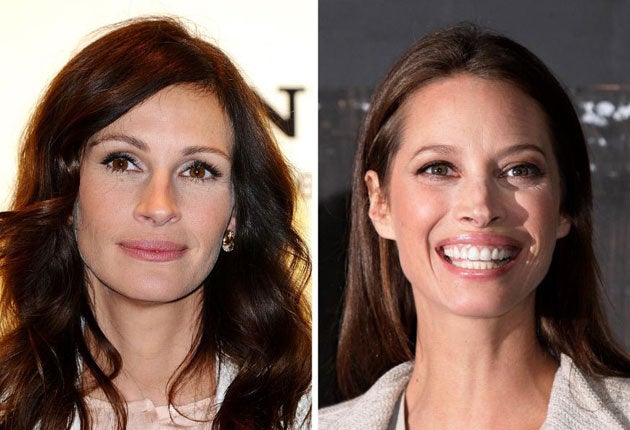Advertising watchdog bans airbrushed L'Oreal ads

Make-up adverts featuring the airbrushed images of actresses Julia Roberts and supermodel Christy Turlington have been banned by the advertising watchdog following a complaint from an MP.
Liberal Democrat Jo Swinson claimed the pictures used in cosmetic giant L'Oreal's magazine campaigns were misleading and "not representative of the results the products could achieve" because they had been digitally manipulated.
The Advertising Standards Authority upheld the claim, agreeing that the images - used to promote products from the company's Lancome and Maybelline brands - breached the advertising standards code for misleading and exaggeration.
L'Oreal's two-page advert featuring Roberts, who is the face of Lancome, promoted a foundation called Teint Miracle, while Turlington featured in a Maybelline campaign for an "anti-ageing" foundation called The Eraser.
Both have now been banned from publication.
L'Oreal admitted post-production techniques had been used in its advert featuring Turlington to "lighten the skin, clean up make-up, reduce dark shadows and shading around the eyes, smooth the lips and darken the eyebrows".
However, the beauty firm said it believed the image accurately illustrated the results the product could achieve.
It also said the flawless skin in the image of Roberts was down to her "naturally healthy and glowing skin", adding the product had taken 10 years to develop.
Ms Swinson, Liberal Democrat MP for East Dunbartonshire, said the two adverts were "particularly bad examples of excessive re-touching" which misled consumers.
She told BBC Radio Scotland's Good Morning Scotland programme today: "Even if women do know they are being lied to, it doesn't make it right.
"We should have honesty in advertising - that's a basic principle of our advertising laws."
She said she was "glad" the Advertising Standards Authority had upheld the advertising laws.
Ms Swinson continued: "I think there's a bigger issue as well because, you know, we are in a situation where one in four people say they are depressed about their body.
"If you look at the young women aged 16 to 21, half of them say they would consider cosmetic surgery at that age, and you've also got a situation where eating disorders have doubled in prevalence over the last 15 years.
"So we do have a big issue in the UK about how people feel about their bodies."
She said "flawless images" in advertising, the media and editorials were not helping the situation.
Many consumers would welcome more realistic pictures, she went on.
"I think they (consumers) would welcome some reality."
She also said it was an issue she had been approached about in the street in her constituency.
PA
Join our commenting forum
Join thought-provoking conversations, follow other Independent readers and see their replies
Comments
Bookmark popover
Removed from bookmarks